Keywords: Mad Men
There are more than 200 results, only the first 200 are displayed here.
-
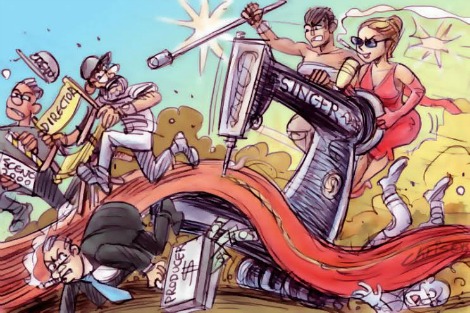
MEDIA
- Rochelle Siemienowicz
- 23 November 2015
10 Comments
The success of the Australian comedy The Dressmaker is thrilling to those watching the local film industry. There's more to cheer in the fact the film is proudly female in both story and production. We're not as bad as Hollywood, but even in Australia, there are not enough films for women, about women and by women. Since the 1970s male directors have been responsible for more than 85 per cent of the feature films made. Why does it matter? Because women are more likely to tell stories about women.
READ MORE 
-

ENVIRONMENT
- Michele Madigan
- 18 November 2015
14 Comments
It's no surprise that three of the federal government's shortlisted sites for the proposed national radioactive waste facility are in South Australia, the 'expendable state'. And it's disturbing to find that the owner of at least one of the sites has been misinformed, believing 'It's basically only a medical waste facility.' In fact the farmer and Indigenous opponents of the sites are right to be concerned. The intermediate level waste housed at such a facility will be hazardous for thousands of years.
READ MORE 
-
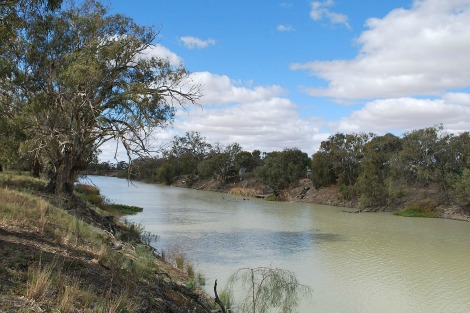
ENVIRONMENT
- Andrew Hamilton
- 12 November 2015
8 Comments
In recent reflection on the future path of Australia the common good has made a welcome return. At the same time the Turnbull Government has transferred responsibility for water resources, including the Murray-Darling Basin, from the Department of the Environment to the Department of Trade. The two things seem to be unrelated. But the concept of the common good has been embodied robustly in the Murray-Darling Basin plan and survives in the midst of continuing conflict.
READ MORE 
-
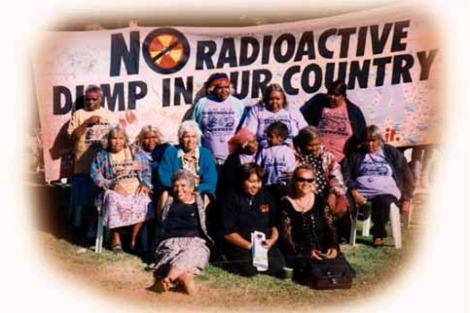
AUSTRALIA
- Michele Madigan
- 10 November 2015
18 Comments
The budget for the 2015 Indigenous Advancement Strategy funded South Australian Aboriginal communities less than ten per cent of what they required, and some received nothing at all. So with the prospect mooted of the state hosting a depository for the world's high-level radioactive waste, it's a very relevant concern that some communities might be enticed to offer themselves as a site. This is not only a justice issue for those communities; the environmental implications are far-reaching.
READ MORE 
-

ARTS AND CULTURE
- B. N. Oakman
- 10 November 2015
7 Comments
I'd never met a Vietnamese, couldn't figure what we had against them. But we were raised in shadow of returned men, the shimmer of lapelled bronze, a presumption we in our turn would go when ordered ... Most of us dodged gap years of sweat and khaki, missing madness, maiming, napalm, agent orange, learning how to kill and to piss ourselves out of fear. Instead we were granted head starts with women, front marks in the greasy pole dash, a less congested clamber to unremarkable lives.
READ MORE 
-
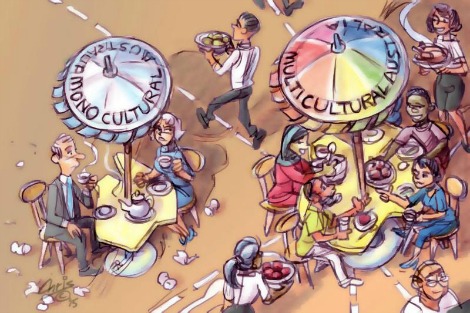
AUSTRALIA
- Gabriela D'Souza
- 09 November 2015
10 Comments
George Megalogenis describes a protest rally in 1849 organised by residents of Sydney against arrivals of more convict boats. Workers who 'wanted to maintain their high-wage society' made 'the first of countless calls that would be made against migrants who threatened to undercut their standard of living'. It is a familiar refrain today. In a world where three-fifths of a person's income is determined by their place of birth, it defies logic that we place restrictions on people's movement to preserve our standard living.
READ MORE 
-
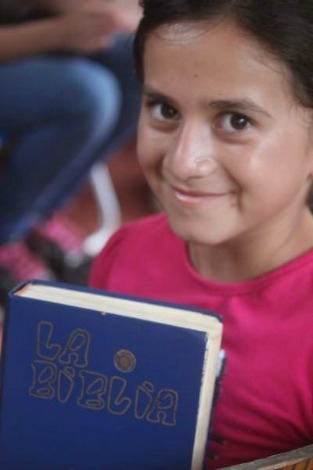
RELIGION
- Beth Doherty
- 29 October 2015
28 Comments
We can assume that despite the recent Synod's focus on families, most of the voters have never had any involvement in raising families, and certainly not of experiencing pregnancy and childbirth. None have directly dealt with an abusive spouse, struggled to regulate family size, questioned whether to stay in an unhappy marriage, or dealt with a child identifying as gay, lesbian or transgender. Last year, I spent time working in a parish in Paraguay, where, unlike the church more broadly, women run the show.
READ MORE 
-
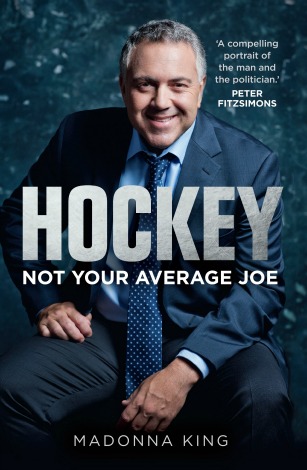
AUSTRALIA
- John Warhurst
- 28 October 2015
7 Comments
There are two broader implications arising from Joe Hockey's valedictory speech. The first is that his failure to reflect on the weaknesses of the Abbott government may be widely shared by his Coalition colleagues. They still don't understand the causes of the predicament they have made for themselves. The second is that if Malcolm Turnbull accepts Hockey's diagnosis then his government will be largely about better communication and more effective politics rather than refurbished policies.
READ MORE 
-

ARTS AND CULTURE
- Tim Kroenert
- 22 October 2015
2 Comments
Brilliant but volatile chef Adam humiliates and physically assaults a female colleague, Helene, over the heinous crime of mis-cooking a piece of fish. The encounter ends with Helene telling Adam to keep his hands off her and storming out. Yet clearly her justified indignation has its limits: in the very next scene she is shown madly rehearsing cooking the dish whose mangling sparked the incident. The glossing over of this abuse reinforces the notion that creative genius somehow excuses arsehole behaviour.
READ MORE 
-
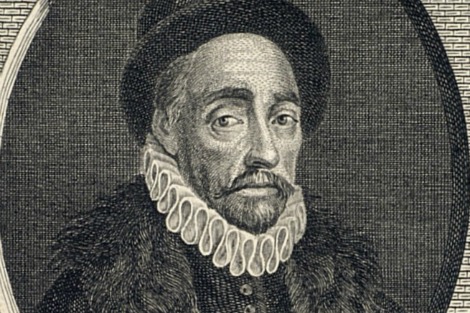
ARTS AND CULTURE
- Patti Miller
- 14 October 2015
13 Comments
I have always felt guilty about an inability to commit to any belief system. So when Montaigne said 'Only fools have made up their mind', I felt an enormous sense of relief. He knew that those who are certain are the ones to shut down newspapers, lop off heads, blow up planes, burn books. There is a thread throughout his essays, too, of him finding sex undignified and therefore unfitting for grown men and women. It is one of his many contradictions and confronts me with my own contradictory attitude.
READ MORE 
-
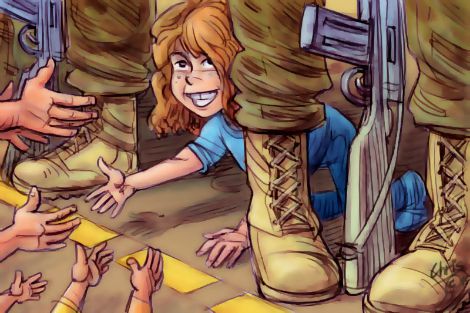
INTERNATIONAL
- Bronwyn Lay
- 28 September 2015
16 Comments
When refugees walked into Europe, away from distant distress sites, their presence made the global issue visceral for Europeans. Australia doesn't have asylum seekers walking en masse through ordinary streets. Our border is one of established hatred. 'Stop the boats' policy denies ordinary Australians their compassionate impulse, and creates a history that our children will face judgement upon. It denies humanity's collective memory after World War II.
READ MORE 
-

ARTS AND CULTURE
- Graham Kershaw
- 22 September 2015
1 Comment
I dreamt of a family escaping through pines, over the crest of a forest, young and old struggling down to the shore of a great cold lake, their only hope of escape; no boat was there, but the strong might try to carry the old, at least, if they cared enough. And it made me want to simply run away, to escape the brain-ache of not doing what we are best made to do.
READ MORE 